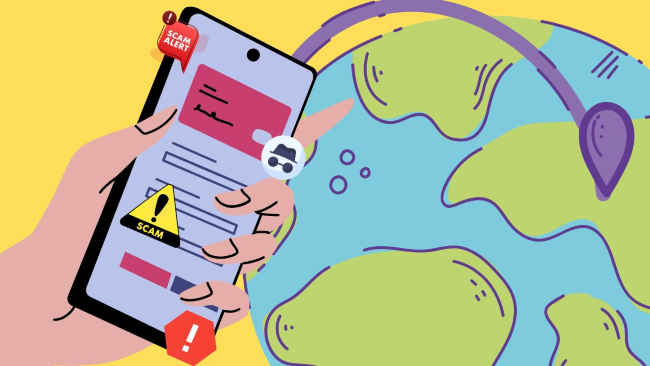The latest online cyber crime report from McAfee is specifically addressed to all the Indian travellers who’ll be jet-setting around in summer vacations and beyond. Titled ‘Safer Holidays,’ the McAfee report highlights some disturbing trends among Indian travellers.
A staggering 51% of Indian adults have fallen victim to online scams, especially while hunting for cost-effective travel deals. Surveying 7,000 individuals from seven countries, the report sought to understand the extent of cybersecurity threats faced when booking and planning trips online, and to evaluate the level of caution exhibited by users when utilising digital platforms overseas.
An overwhelming 61% of Indian travellers voiced their concerns about the potential compromise of their devices while travelling, making up the highest level of concern worldwide from any one country of travellers.
Even more troubling is the following statistic, that 77% of those who suffered from online scams reported losses up to $1,000 (approximately ₹83,000) before even their travels began – which is a worrisome trend.

McAfee’s report claims two-thirds of Indian vacationers are planning domestic travel this year, and as many as 42% set to travel internationally. McAfee’s research suggests that rising inflation and cost-of-living pressures has increased the risk of leisure travellers falling prey to attractive, sophisticated, deceptive online deals related to travel and hotel booking – because a whopping 93% of Indians are expected to book their holidays online.
Digital traps are becoming increasingly sophisticated and varied. McAfee’s research found that 27% of Indian adults have been duped into transferring money via bogus platforms, and a shocking 36% have had their identities stolen when booking online. Alarmingly, of these victims, 13% shared passport details, and 23% disclosed other personal information to counterfeit websites.
Unfortunately, awareness does not always translate into action. Even with 46% of respondents acknowledging that their personal information is less secure while using the internet on vacation, a mere 61% utilise services to monitor their online identity. A surprising 33% do not use a VPN while on vacation, and among those that do, 28% use it mainly to access geo-specific content.
A significant number of travellers engage in risky activities such as using unsecured Wi-Fi networks (38%), using free USB charging ports at public terminals (34%), or leaving their streaming accounts logged in after checking out of their accommodation (29%). Despite the risks, travellers continue to engage in these practices.
Having said that, McAfee does recommend some safety tips while engaging in online travel related activities. If you receive an email asking you to click on a link, even if the travel deal sounds great, it’s best to avoid interacting with the message altogether.
Be cautious when connecting to public Wi-Fi while on vacation and make sure the Wi-Fi is secure and attached to a trusted source – use a VPN wherever possible. Don’t pay for rentals by wire transfer, prepaid cards or gift cards. These types of transactions often can’t be reversed if the rental offer is fraudulent.
The report underscores the dire need for increased cybersecurity awareness and stringent safety measures among Indian travellers, especially when relying on online travel booking websites and deal apps. If not, today’s scammers are nothing but ready to exploit the slightest lapse in would-be travellers’ online safety practices.
For all the latest Technology News Click Here
For the latest news and updates, follow us on Google News.
